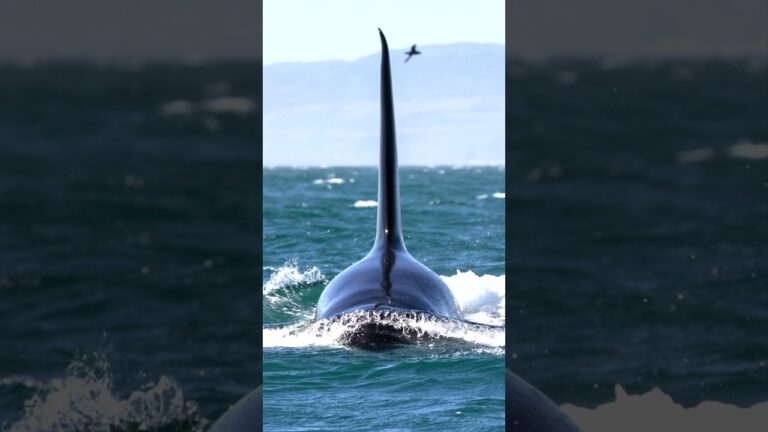Exploring Life: Biologist Job Description & Salary

Biologist Job Description Template
Biologist Job Description A biologist is a scientist who studies living organisms and their interactions with the environment. They conduct research, perform experiments, and analyze data to understand various biological processes. Biologists work in diverse fields such as ecology, genetics, microbiology, and biochemistry. One of the crucial responsibilities of biologists is to observe and identify different species, both plants and animals. They collect samples, study their behavior, and analyze their physical characteristics. By understanding the biodiversity of various ecosystems, biologists contribute to the conservation and preservation of endangered species. Another important aspect of a biologist’s job is conducting experiments and analyzing data. They design experiments to test hypotheses and collect data using sophisticated laboratory equipment. Biologists use statistical analysis to interpret the results and draw conclusions. This data-driven approach helps in understanding biological processes at the molecular, cellular, and organismal levels. Biologists also play a significant role in conducting fieldwork. They may spend considerable time in the field, collecting samples, observing wildlife, and studying ecosystems. Fieldwork enables biologists to gather real-time data and directly observe the interactions between organisms and their environment. In addition to research, biologists often communicate their findings through scientific papers and presentations. They collaborate with other scientists, attend conferences, and contribute to scientific knowledge by publishing their work. In summary, biologists are scientists who study living organisms and their environments. They perform research, conduct experiments, analyze data, and communicate their findings. Their work contributes to our understanding of the natural world and helps in solving various biological challenges. Important Keywords: 1. Biodiversity: The variety of species in a particular ecosystem or on Earth as a whole. Biologists study biodiversity to understand the complexity and interconnectedness of different organisms. 2. Conservation: The protection, preservation, and management of natural resources, including wildlife, plants, and their habitats. Biologists play a crucial role in conserving biodiversity and advocating for sustainable practices.Biologist Responsibilities
Biologist Requirements
How Much Does A Biologist Make?
Biologist Salary
| Job Title | Average Salary |
|---|---|
| Research Biologist | $65,000 |
| Wildlife Biologist | $60,000 |
| Marine Biologist | $70,000 |
| Microbiologist | $75,000 |
A biologist’s salary can vary based on factors such as job title, experience, education level, and location. The table above presents average salaries for different biologist positions. Research biologists earn an average of $65,000 per year, while wildlife biologists earn around $60,000. Marine biologists have a higher average salary of $70,000, and microbiologists earn even more at $75,000. It is important to note that these figures are averages and individual salaries may differ. Additionally, salaries may increase with higher levels of education and experience in the field.
Biologist Salaries by Country
Top Paying Countries for Biologists
| Country | Average Salary (USD) |
|---|---|
| Switzerland | 100,000 |
| United States | 85,000 |
| Germany | 75,000 |
| Canada | 70,000 |
| Australia | 65,000 |
A biologist’s salary can vary depending on the country they work in. According to the data, Switzerland is the top paying country for biologists, with an average salary of $100,000. The United States follows closely behind with an average salary of $85,000. Germany, Canada, and Australia also offer competitive salaries for biologists, ranging from $65,000 to $75,000. It’s important to note that these figures are averages and can vary based on factors such as experience, qualifications, and job location within each country. Overall, these countries provide attractive opportunities for biologists seeking higher salaries in their careers.
A video on the topic Biologist
Video Source : AVNJInterview Questions for Biologist
1. What is the role of a biologist?
A biologist studies living organisms and their interactions with the environment. They conduct research, collect and analyze data, and contribute to a better understanding of the natural world.
2. What are the different branches of biology?
The different branches of biology include molecular biology, genetics, ecology, botany, zoology, microbiology, and evolutionary biology.
3. What skills are important for a biologist to have?
Important skills for a biologist include critical thinking, problem-solving, analytical skills, attention to detail, laboratory techniques, data analysis, and communication skills.
4. Can you explain the process of natural selection?
Natural selection is the process by which certain traits become more or less common in a population over time. It occurs when individuals with advantageous traits are more likely to survive and reproduce, passing those traits on to their offspring.
5. What is the importance of biodiversity?
Biodiversity is important because it contributes to the stability and resilience of ecosystems. It provides us with ecosystem services, such as clean air and water, food, and medicines. Biodiversity also has aesthetic, cultural, and recreational values.
6. How do biologists contribute to conservation efforts?
Biologists play a crucial role in conservation efforts by studying endangered species and their habitats, assessing the impact of human activities on ecosystems, and developing strategies to protect and restore biodiversity.
7. What are some current challenges in the field of biology?
Some current challenges in biology include climate change and its effects on ecosystems, the loss of biodiversity, emerging infectious diseases, genetic engineering, and ethical considerations related to biotechnology.
8. How does biology relate to other scientific disciplines?
Biology is closely related to other scientific disciplines such as chemistry, physics, geology, and mathematics. It incorporates principles and concepts from these disciplines to understand the structure, function, and interactions of living organisms.
9. Can you explain the process of photosynthesis?
Photosynthesis is the process by which green plants and some other organisms convert sunlight, carbon dioxide, and water into glucose (a form of sugar) and oxygen. This process occurs in chloroplasts, which contain the pigment chlorophyll.
10. What are some career options for biologists?
Some career options for biologists include research scientists, environmental consultants, wildlife biologists, geneticists, microbiologists, botanists, and teachers/professors. Biologists can also work in various industries such as pharmaceuticals, biotechnology, and conservation organizations.






